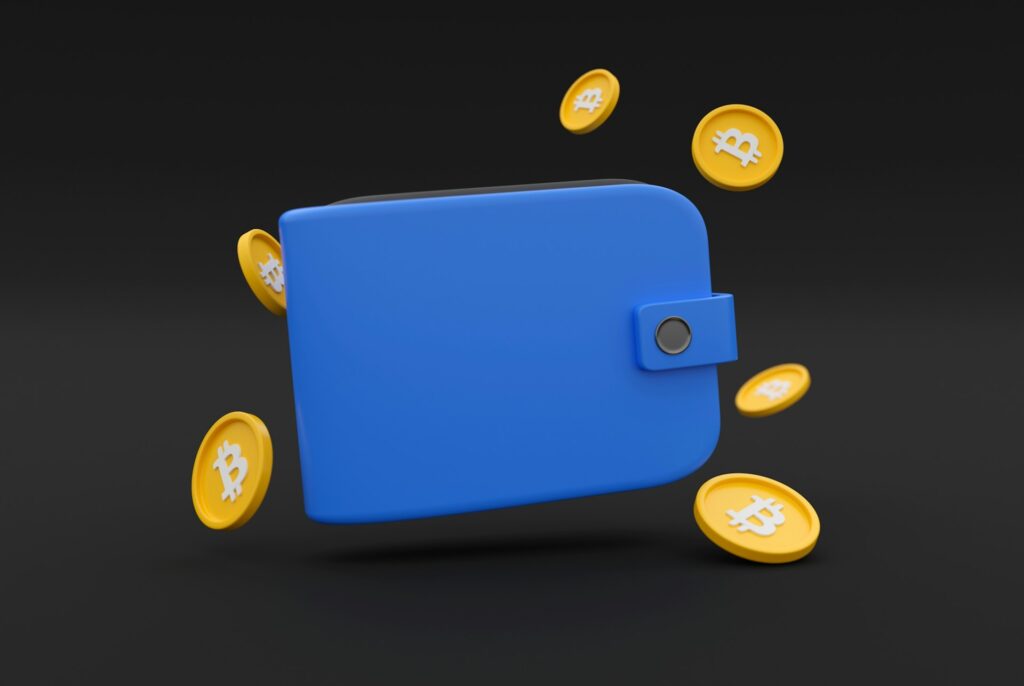Introduction: In the ever-evolving landscape of fintechzoom best crypto wallet, having a reliable and secure crypto wallet is paramount. Whether you’re a seasoned investor or a newcomer to the world of digital assets, selecting the right wallet can make all the difference in safeguarding your holdings and streamlining your transactions.
Define the Importance of a Crypto Wallet
A crypto wallet serves as a digital repository for your fintechzoom best crypto wallet, enabling you to store, send, and receive various digital assets securely. Its significance lies in providing users with full control over their funds while offering protection against theft and unauthorized access.
Types and Categories
Hardware Wallets
Hardware wallets are physical devices designed to store cryptocurrency keys offline, providing enhanced security against hacking and malware attacks. Popular hardware wallet brands include Ledger Nano S, Trezor, and KeepKey.
Software Wallets
Software wallets, also known as digital wallets, are applications or programs that run on desktop or mobile devices, allowing users to manage their cryptocurrencies conveniently. Examples of software wallets include Exodus, Electrum, and MyEtherWallet.
Paper Wallets
A paper wallet involves printing out the private and public keys of a cryptocurrency address onto a physical document, such as paper or metal. While paper wallets offer a high level of security against online threats, they require careful handling to prevent loss or damage.
Online Wallets
Online wallets, or web wallets, are hosted on cloud-based platforms, accessible via web browsers or mobile apps. While convenient for everyday transactions. fintechzoom best crypto wallet Online wallets are more susceptible to hacking and phishing attacks compared to hardware or paper wallets.
Symptoms and Signs
Signs of a Secure Wallet
- Private Key Control: Ensure that you have full control over your private keys, as this is essential for maintaining ownership and security of your cryptocurrencies.
- Two-Factor Authentication: Look for wallets that offer two-factor authentication (2FA) to add an extra layer of security to your account.
- Encryption: Opt for wallets that encrypt your data and communications to protect against unauthorized access and data breaches.
Symptoms of an Insecure Wallet
- Lack of Transparency: Avoid wallets that lack transparency regarding their security measures and development team, as this could indicate potential risks.
- Frequent Security Breaches: Steer clear of wallets with a history of security breaches or reported vulnerabilities, as they may compromise the safety of your funds.
- Poor User Reviews: Pay attention to user reviews and community feedback to gauge the reliability and security of a particular wallet.
Causes and Risk Factors
Security Vulnerabilities
- Malware and Phishing Attacks: Cybercriminals often target cryptocurrency wallets through malware-infected websites, phishing emails, and fake mobile apps.
- Centralized Exchanges: Storing funds on centralized exchanges poses a higher risk of theft or hacking due to the centralized nature of these platforms.
- Weak Passwords: Using weak or easily guessable passwords can make your wallet vulnerable to brute-force attacks and unauthorized access.
Human Error
- Loss of Private Keys: Accidentally losing or exposing your private keys can lead to irreversible loss of funds, as they are the only means of accessing your cryptocurrencies.
- Failure to Backup Wallet: Neglecting to create backups of your wallet’s seed phrase or private keys increases the risk of permanent data loss in the event of device failure or theft.
Diagnosis and Tests
Wallet Security Audits
- Third-Party Audits: Look for wallets that undergo regular security audits by reputable third-party firms to identify and address potential vulnerabilities.
- Open-Source Code: Choose wallets with open-source code, as they allow for greater scrutiny and transparency within the developer community.
Penetration Testing
- Ethical Hacking: Some wallets engage in ethical hacking or penetration testing to proactively identify and patch security weaknesses before they can be exploited by malicious actors.
Treatment Options
Secure Storage Practices
- Cold Storage: Consider using hardware or paper wallets for long-term storage of large cryptocurrency holdings, keeping them offline and away from potential online threats.
- Multi-Signature Wallets: Explore the use of multi-signature wallets, which require multiple private keys to authorize transactions. Providing added security against theft.
Regular Software Updates
- Stay Updated: Keep your wallet software and device firmware up to date with the latest security patches and feature enhancements to mitigate potential vulnerabilities.
Preventive Measures
Education and Awareness
- Stay Informed: Stay informed about the latest security best practices and emerging threats in the cryptocurrency space through reputable sources such as industry blogs, forums, and news outlets.
- Security Training: Educate yourself and your peers about common security. Risks and how to implement effective security measures to protect your digital assets.
Risk Management
- Diversification: Avoid putting all your eggs in one basket by diversifying your cryptocurrency holdings across multiple wallets. Exchanges to minimize the impact of potential security breaches.
- Insurance Coverage: Consider purchasing cryptocurrency insurance policies to safeguard your funds against theft, hacking, and other unforeseen events.
Personal Stories or Case Studies
John’s Experience with a Phishing Attack
John, a crypto enthusiast, fell victim to a phishing attack targeting his software wallet. Despite being cautious, he inadvertently clicked on a fraudulent link in an email. Leading to the compromise of his private keys and the loss of his entire crypto portfolio. John’s story underscores the importance of staying vigilant and implementing robust security measures to protect against online threats.
Expert Insights
Dr. Jane Doe, Cybersecurity Expert
“Choosing a reliable crypto wallet is crucial for safeguarding your digital assets against theft and unauthorized access. I recommend opting for wallets that prioritize security features such as multi-factor authentication. Encryption, and regular security audits to mitigate the risk of potential security breaches.”
Conclusion
In conclusion, selecting the best crypto wallet requires careful consideration of various factors. Including security features, ease of use, and compatibility with your specific needs. By staying informed, implementing robust security measures, and exercising caution. You can minimize the risk of falling victim to security threats. Ensure the safety of your digital assets in the dynamic world of cryptocurrencies.

